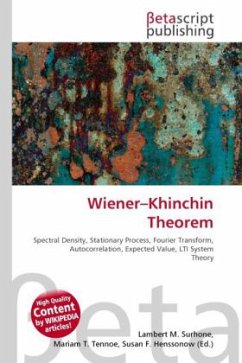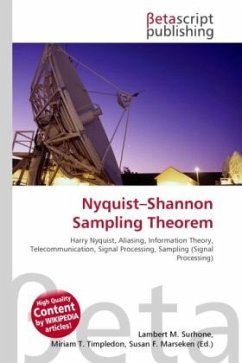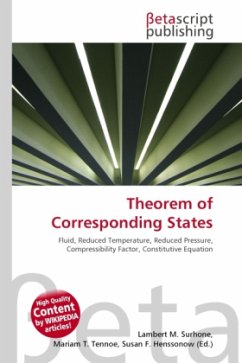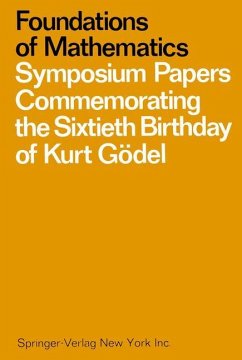
Optional Stopping Theorem
Versandkostenfrei!
Versandfertig in 6-10 Tagen
19,99 €
inkl. MwSt.

PAYBACK Punkte
10 °P sammeln!
Please note that the content of this book primarily consists of articles available from Wikipedia or other free sources online. In probability theory, the optional stopping theorem (or optional sampling theorem) says that, under certain conditions, the expected value of a martingale at a stopping time is equal to its initial value (and also expected value at any deterministic time). The optional stopping theorem can be used to prove the impossibility of successful betting strategies for a gambler with a finite lifetime (which gives condition (a)) and a house limit on bets (condition (b)). Supp...
Please note that the content of this book primarily consists of articles available from Wikipedia or other free sources online. In probability theory, the optional stopping theorem (or optional sampling theorem) says that, under certain conditions, the expected value of a martingale at a stopping time is equal to its initial value (and also expected value at any deterministic time). The optional stopping theorem can be used to prove the impossibility of successful betting strategies for a gambler with a finite lifetime (which gives condition (a)) and a house limit on bets (condition (b)). Suppose that the gambler can wager up to c dollars on a fair coin flip at times 1, 2, 3, etc., winning his wager if the coin comes up heads and losing it if the coin comes up tails. Suppose further that he can quit whenever he likes, but cannot predict the outcome of gambles that haven''t happened yet. Then the gambler''s fortune over time is a martingale, and the time at which he decides to quit (or goes broke and is forced to quit) is a stopping time. So the theorem says that E[X ] = E[X1].












